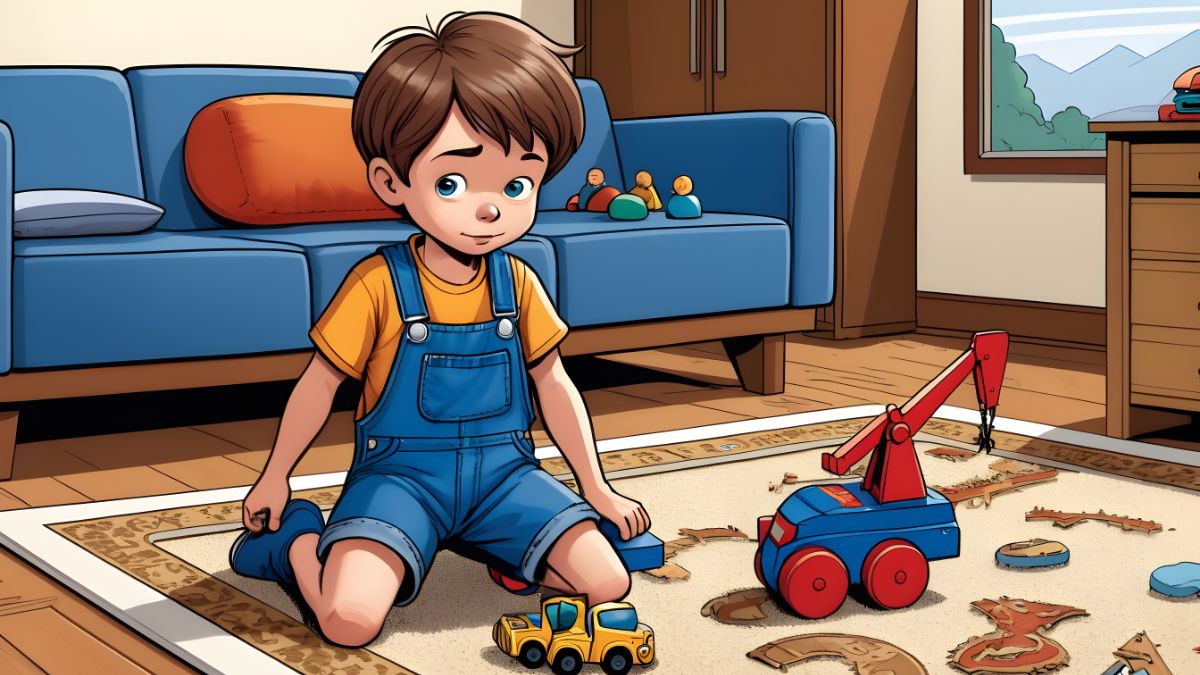
Have you ever stopped to think about why kids are so drawn to play and exploration, even if it means creating a bit of chaos? Whatever the answer may be, one thing’s for certain – it’s an essential part of how children learn and grow.
Let’s take a closer look at how toys (and good old-fashioned fun) play a crucial role in helping kids develop in ways that might surprise you.
Boosts brain power
When kids get their hands on toys, they’re embarking on an exciting educational journey where learning meets fun. Think about it: every block they stack, every picture they paint, and every character role they assume in play scenarios are acts of brain gymnastics.
These activities stimulate cognitive processes like problem-solving, memory, and spatial awareness. It’s fascinating how toys designed for fun are also incredible tools for cognitive development.
They cater to various learning styles—visual, auditory, kinesthetic—making sure every child gets a shot at understanding and interacting with the world around them in their unique way. So, while it may just look like child’s play, there’s a lot of brainpower being flexed and expanded.
Develops social skills
Ever watched kids make up a game and negotiate the rules? That’s the workshop for future diplomats right there. When children come together with a common goal—to build the tallest tower, to win a board game, or simply to share and enjoy toys—they’re signing up for an unspoken course in social skills 101.
Negotiating roles, waiting patiently for their turn, and learning the fine art of cooperation are all part of the curriculum. These seemingly simple interactions are the building blocks of empathy, communication skills, and the ability to work in teams. What’s more, toys that encourage group play, like team sports equipment or board games, are teaching children how to navigate the complex world of human interactions with grace and understanding.
Through play, they learn to understand and respect others’ feelings, share triumphs and disappointments, and build bonds of friendship that often last beyond the playground.
Enhances sensory and motor development
We all want our kids to grow up into little geniuses, but that needs to be done in a non-threatening and very fun way. This is where parents can rely on educational toys. You can buy the best Montessori toys for 2 year olds and provide your kids with something more than simple playthings, but gateways to sensory exploration and motor skill mastery.
Designed with the purpose of stimulating the senses, toys such as textured blocks, simple musical instruments, and puzzles made from natural materials invite little ones to touch, feel, and interact in ways that are profoundly educational.
Each toy is a puzzle of its own, designed to be both challenging and achievable, ensuring that as children play, they are also developing the coordination and dexterity they will need for everyday tasks.
Sparks creativity and imagination
When it comes to playing with toys, the imagination reigns supreme. Building blocks, art tools, and role-playing costumes are examples of toys that encourage creativity and lead to endless realms of imagination.
With the aid of these playthings, children can unleash their creativity and create worlds, characters, and situations that transcend the confines of reality. Children learn to navigate and construct their stories while they work on these creative projects, which also help them develop critical thinking and problem-solving skills.
This imaginative play is crucial for developing tomorrow’s creative thinkers as well as for providing instant happiness and interest. Through these unplanned, unstructured playtimes, kids get the opportunity to become creators.
Teaches problem-solving
Toys are the unsung heroes of problem-solving education. Each challenge a toy presents is an opportunity for a child to engage in critical thinking. Be it figuring out the mechanics of a new game, constructing a stable structure from blocks, or solving a complex puzzle, these moments are invaluable.
They teach resilience and adaptability, as children learn that failure is just a step towards success, not an endpoint. This kind of play encourages children to experiment, to ask ‘what if’, and to persevere through trial and error. It’s a safe and engaging way to introduce the concept of problem-solving, instilling in them the confidence to face and navigate challenges.
Ultimately, toys that challenge their intellect and require patience not only entertain but also equip children with the cognitive tools to tackle future obstacles, both in the classroom and in life.
To sum up, the undeniable influence of play in a child’s development cannot be overstated. Through playing with toys and having fun, children not only cultivate essential cognitive and social skills but also foster a sense of creativity and resilience.
That’s the main point–playing is not just about having fun—it’s about nurturing the very essence of childhood and laying a strong foundation for lifelong growth and well-being.





1 Comment
izoon
What a interesting topic!!!